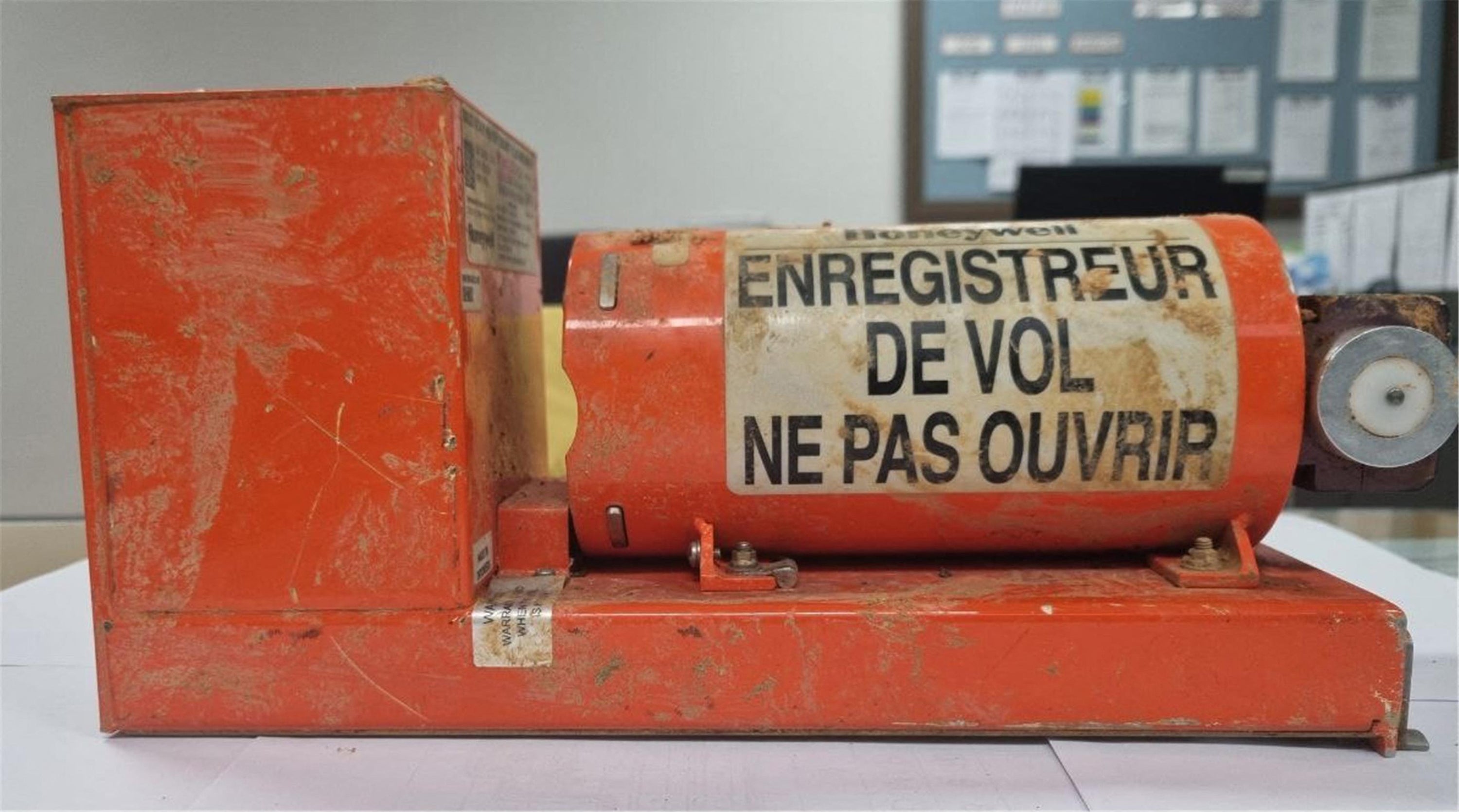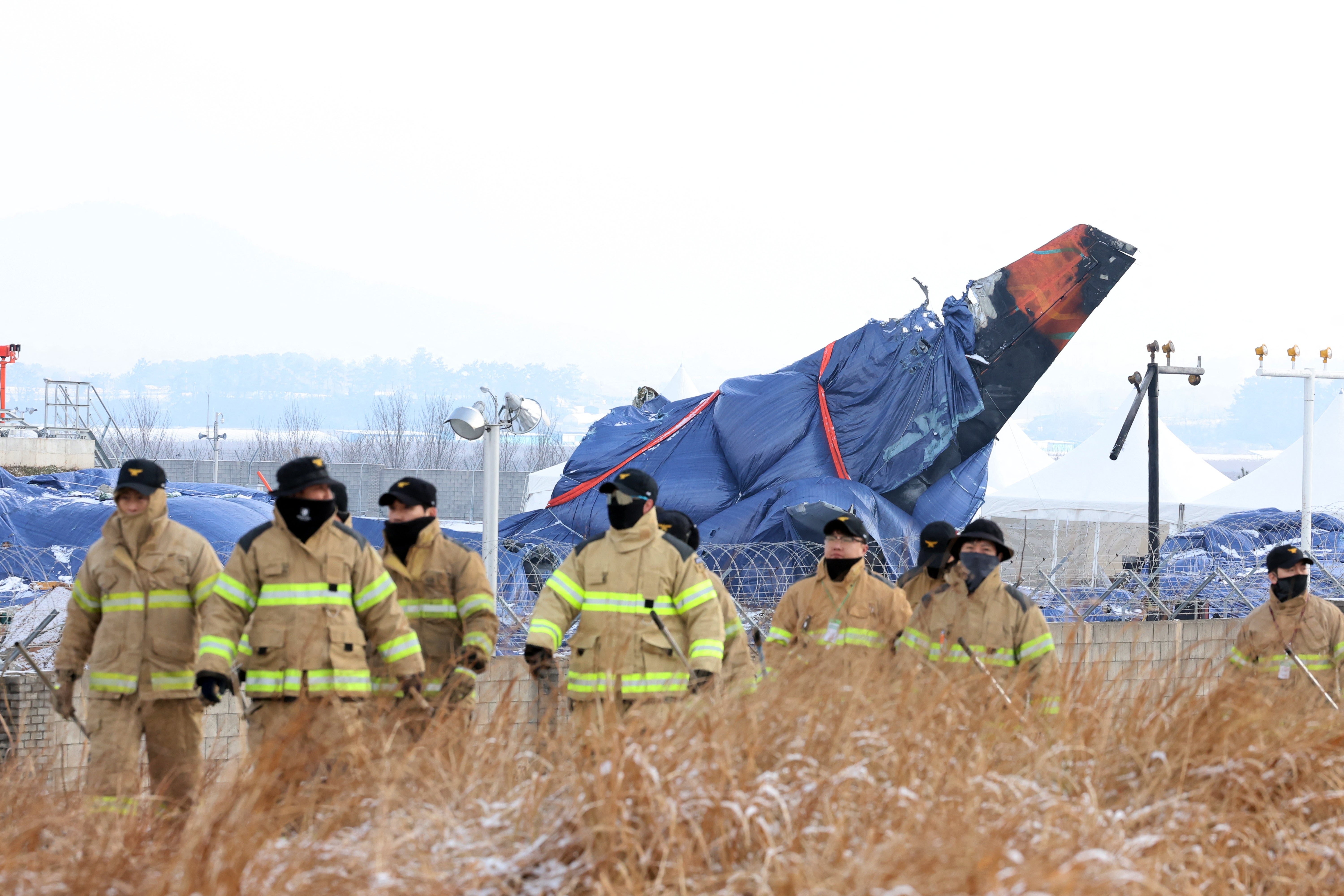Your support helps us to tell the story
From reproductive rights to climate change to Big Tech, The Independent is on the ground when the story is developing. Whether it’s investigating the financials of Elon Musk’s pro-Trump PAC or producing our latest documentary, ‘The A Word’, which shines a light on the American women fighting for reproductive rights, we know how important it is to parse out the facts from the messaging.
At such a critical moment in US history, we need reporters on the ground. Your donation allows us to keep sending journalists to speak to both sides of the story.
The Independent is trusted by Americans across the entire political spectrum. And unlike many other quality news outlets, we choose not to lock Americans out of our reporting and analysis with paywalls. We believe quality journalism should be available to everyone, paid for by those who can afford it.
Your support makes all the difference.
Flight data and cockpit voice recorders on the South Korean Jeju Air plane which crashed last month, killing 179 people, stopped recording about four minutes before it came down at Muan airport, the country’s transport ministry said on Saturday.
Authorities investigating the devastating crash said the plane’s black boxes stopped recording four minutes before the airliner hit a concrete structure at the end of the runway at Muan.
Jeju Air flight 7C2216 departed Bangkok on 29 December for Muan in southwestern South Korea, but crash-landed on its belly, overshooting the regional airport’s runway and exploding into flames after hitting an embankment.
Two of the victims were Thai nationals, while all others were from South Korea.
The voice recorder recovered from the jet was analysed in South Korea, but authorities then sent it to a US National Transportation Safety Board laboratory after data was found to be missing.

Pilots received a warning from air traffic controllers in an emergency call about possible “bird activity”, and the plane issued a distress signal before the crash, but the exact cause of the disaster remains unclear.
Preliminary investigations suggest the pilots abandoned a landing attempt after the emergency call and initiated a go-around.
But instead of making a full go-about, the jet took a sharp turn towards the airport’s single runway from the opposite end and crash-landed without its landing gear deployed.

The discovery that the crucial final minutes are missing from the flight recorders is surprising, said Sim Jai Dong, a former transport ministry accident investigator.
It could suggest that all power, including backup, may have been cut during those final moments, something that would be a rare occurrence, Mr Sim told Reuters.
South Korean police said in a statement earlier this week that investigators searched the offices of the airport operator, the transport ministry’s aviation authority in the southwestern county of Muan, and the office of Jeju Air in Seoul.
Investigators are also reportedly looking into the Jeju Air plane’s landing gear, suspecting it may have malfunctioned.
Officials planned to seize documents related to the operation and maintenance of the aircraft and the airport facilities.
The South Korean transport ministry said that other available data from the crash would be investigated transparently with the information shared with the victims’ families.
Some of the families have called for the probe to be carried out with the involvement of independent experts and not led by the transport ministry.
